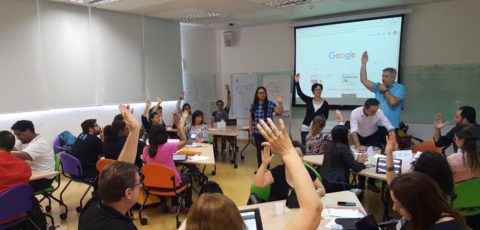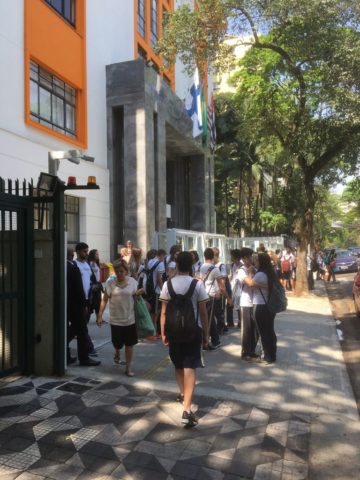There is no teaching without learning
There is no teaching without learning (Paulo Freire)
“Basic education lays the foundation for the pupil´s general knowledge and ability. The local authority has an obligation to arrange basic education for children of compulsory education age residing in its area. The obligations that direct the provision of basic education come from the Constitution of Finland, the Basic Education Act and Decree, Governmental Decrees and the National Core Curriculum. Obligations arising from other legislation and international agreements to which Finland is party are also taken into account in the provision of education. Basic education is based on shared underlying values and a common conception of learning.” – National Core Curriculum for Basic Education 2014
 Where is that famous “pedagogical freedom”?
Where is that famous “pedagogical freedom”?
Teacher´s autonomy and equity of education are the cornerstones of Finnish education. Teachers have a high degree of pedagogical freedom and at the same time a great responsibility to follow those general lines written in our core curriculum and acts. One part of this freedom is that teachers have been involved in creating and developing the curriculum on national and especially on local level. The core curriculum defines the shared values, the role of education, the objectives, core content and assessment. The pedagogical freedom means that teachers have freedom to choose their methods to teach and to assess. Teachers are not evaluated through formal measures and quality assurance is based on shared leadership between principals and teachers.
Finnish teachers participate in the administrative and the pedagogical decision making processes of their own school as well as at various levels of the Finnish school-system. This plays a big part of their pedagogical freedom and it means that they have a big responsibility related to these tasks. Teachers manage their work as educators by negotiating, dialogues – a democratic way of pedagogical thinking and acting. This is based on trust. Trust among teachers, principals and administrators. Teachers are committed to learning, participation and activity in their pedagogy, in their collaboration with society, parents and other stakeholders (Auli Toom, Jukka Husu: Finnish teachers as “makers of many” – balancing between Broad Pedagogical Freedom and Responsibility, in book Miracle of Education).
I have had a possibility to train some groups of Brazilian teachers during this year. They all have been ready to work as change agents in educational reform. At the same time, they often feel anxious because of curricula, standardized tests, funding limits and so on. We have had nice discussions about their flexibility and possibilities of pedagogical freedom inside that framework. They are creative people so they find out easily how they can use their pedagogical freedom by using different methods, PBL, Projects, self-assessment, group assessment, activating methods and so on.
Brazilian philosopher Paulo Freire wrote “Teaching is not just transferring knowledge”. He wrote that to know how to teach is to create possibilities for the construction and production of knowledge rather than to be engaged simply in a game of transferring knowledge. He continues: “There is a relationship between the joy essential to teaching activity and hope. Hope is something that is shared between teachers and students. The hope that we can learn together, teach together, be curiously impatient together, produce something together, and resist together the obstacles that prevent the flowering of our joy. In truth, from the point of view of the human condition, hope is an essential component and not an intruder”.
If you only see the obstacles, you can never be free.
Happy autumn,
Juha Lahtinen
